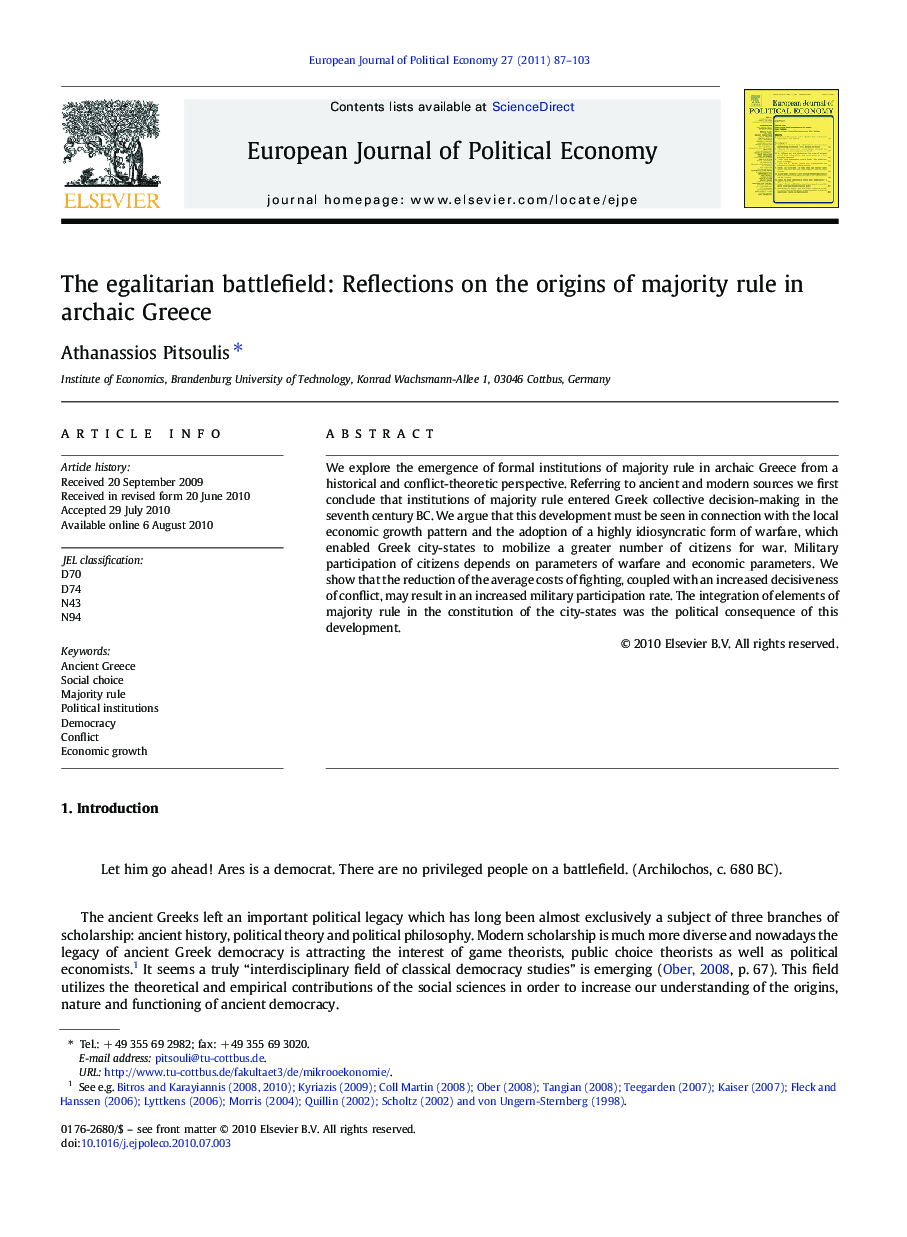| Article ID | Journal | Published Year | Pages | File Type |
|---|---|---|---|---|
| 5068238 | European Journal of Political Economy | 2011 | 17 Pages |
We explore the emergence of formal institutions of majority rule in archaic Greece from a historical and conflict-theoretic perspective. Referring to ancient and modern sources we first conclude that institutions of majority rule entered Greek collective decision-making in the seventh century BC. We argue that this development must be seen in connection with the local economic growth pattern and the adoption of a highly idiosyncratic form of warfare, which enabled Greek city-states to mobilize a greater number of citizens for war. Military participation of citizens depends on parameters of warfare and economic parameters. We show that the reduction of the average costs of fighting, coupled with an increased decisiveness of conflict, may result in an increased military participation rate. The integration of elements of majority rule in the constitution of the city-states was the political consequence of this development.
